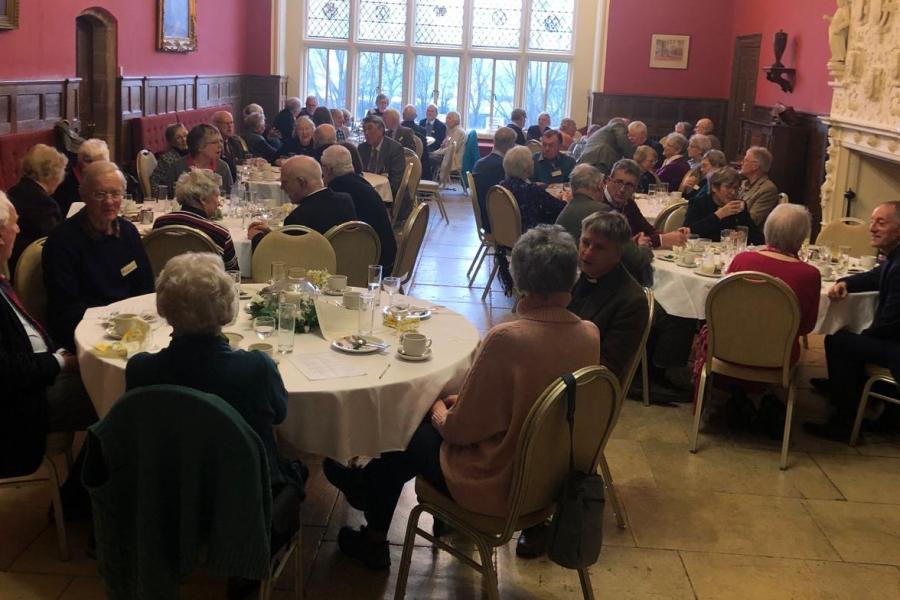Gods work
Have you noticed that when you turn the pages of scripturepeople are often described by the job they do? Abraham was a herdsman, Noah was a farmer, David was a shepherd, thefirst disciples of Jesus where commercial fishermen, Matthew was a taxcollector and Lydia was a merchant. Amongst other occupations, we meet doctors,tent-makers, perfumers, cooks, domestic servants, millers, sailors,prostitutes, shop keepers and builders. Jesus, who grew up in and around the family carpentry business, keptspeaking of the world of work in his parables - farmers sowing seeds, womenmaking bread or cleaning the house, and labourers in the vineyard. Work is all around.
In January I attended an event celebrating the 350thanniversary of Old Swinford Hospital School in Stourbridge. The guest speaker was the Bank of EnglandsChief Economist, Andrew Haldane, and he explored the rise of the robots andwhat this would mean for the future of work. Apparently further advances in computers may well mean that we dontneed 95% of todays accountants, but teachers are harder to replace; wellperhaps only lose 1% of them! I failedto ask for his prediction about clergy!
Andrew Haldane was clear that we can trace major changes andtrends in the job market back to the industrial revolution. Innovation and ideas have kept changing theneed for different jobs and this will continue. He suggested that our challenge for the future of work is to be one stepahead of the machines by preparing people to work in areas that machines willfind it hard to replicate. This meansthat creativity and the ability to think outside the box, as well as emotionalintelligence and social skills, will all have a key place in the world of work.
It strikes me that the journey of Christian discipleshipequips people very well in many of these future areas. In following God we are drawn into beingco-workers for his Kingdom. God isalways opening us up to the possibility of seeing things in his way, notfollowing the crowd, but being open to new ideas and seeking to mend theworld. Prayer draws us into theslip-stream of Gods wonder and transformation, seeing the needs of ourneighbours and those the world wishes to leave behind. And our churches are social places where generationsmix and learn together.
Jesus compared the work of building his Kingdom to themanual labour of those working in the fields, to the fishermen out all nightand to the ownership of a vineyard. Theworkers bring in their offering of grain and fish and grapes to create afeast. As we prepare for Holy Communionwe offer the work of human hands, taking kneaded and baked bread, and squeezedand fermented grape juice, together with our whole selves, our work, our joys,our sadness and struggles. We offer back to God in thanksgiving for what wereceive. This is what St Benedict calledopus Dei, the work of God, to which we are all called to contribute.
Bishop Graham

